Filter by
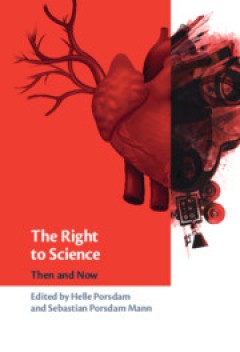
The right to science : then and now
That everyone has a human right to enjoy the benefits of the progress of science and its applications comes as a surprise to many. Nevertheless, this right is pertinent to numerous issues at the intersection of science and society: open access; 'dual use' science; access to ownership and dissemination of data, knowledge, methods and the affordances and applications thereof; as well as the role …
- Edition
- -
- ISBN/ISSN
- 9781108478250
- Collation
- xii, 324 p. ; ill
- Series Title
- -
- Call Number
- 342.0853 POR t
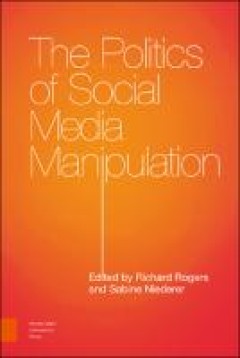
The politics of social media manipulation
Disinformation and so-called fake news are contemporary phenomena with rich histories. Disinformation, or the willful introduction of false information for the purposes of causing harm, recalls infamous foreign interference operations in national media systems. Outcries over fake news, or dubious stories with the trappings of news, have coincided with the introduction of new media technologies …
- Edition
- -
- ISBN/ISSN
- 978 90 4855 167 5 (
- Collation
- 292 p.
- Series Title
- -
- Call Number
- 320 POL p
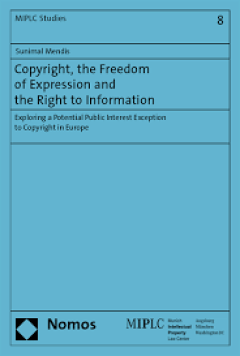
Copyright, the Freedom of Expression and the Right to Information
With the advent of a global community, which draws its sustenance from the unfettered communication of ideas and expression, it is worth reflecting on the role of copyright law and considering whether the existing legal frameworks of copyright in Europe have the capacity to meet the changing needs of a new generation who have given a whole new meaning to the term ""creativity"" and to that of "…
- Edition
- Edition 2011, Volume 8
- ISBN/ISSN
- 9783845231266
- Collation
- 84 p.
- Series Title
- -
- Call Number
- 340 MEN c
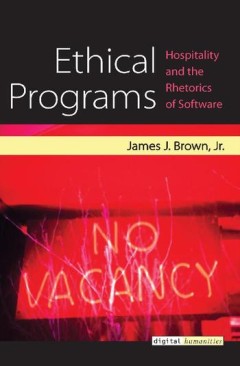
Ethical programs : hospitality and the rhetorics of software
Living in a networked world means never really getting to decide in any thoroughgoing way who or what enters your “space” (your laptop, your iPhone, your thermostat . . . your home). With this as a basic frame-of-reference, James J. Brown’s Ethical Programs examines and explores the rhetorical potential and problems of a hospitality ethos suited to a new era of hosts and guests. Brown rea…
- Edition
- -
- ISBN/ISSN
- 9780472072736
- Collation
- x, 217p. : ill.
- Series Title
- -
- Call Number
- 174.9005 BRO e
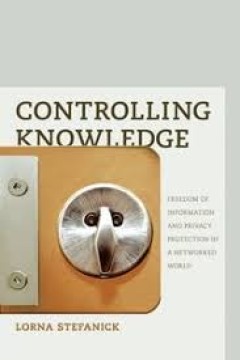
Controlling knowledge freedom of information and privacy protection in a netw…
Digital communications technology has immeasurably enhanced our capacity to store, retrieve, and exchange information. But who controls our access to information, and who decides what others have a right to know about us? In Controlling Knowledge, author Lorna Stefanick offers a thought-provoking and user-friendly overview of the regulatory regime that currently governs freedom of information a…
- Edition
- -
- ISBN/ISSN
- 9781926836270
- Collation
- -
- Series Title
- -
- Call Number
- 342.0853 STE c
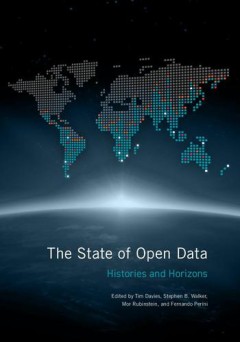
The state of open data : histories and horizons
It’s been ten years since open data first broke onto the global stage. Over the past decade, thousands of programmes and projects around the world have worked to open data and use it to address a myriad of social and economic challenges. Meanwhile, issues related to data rights and privacy have moved to the centre of public and political discourse. As the open data movement enters a new phase…
- Edition
- -
- ISBN/ISSN
- 9781928331957
- Collation
- xiii, 574p. : ill.
- Series Title
- -
- Call Number
- 070.57973 STA s
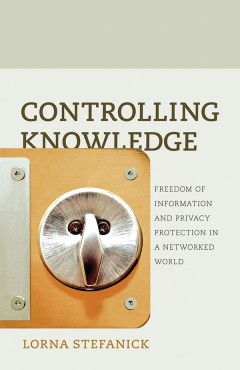
Controlling knowledge : freedom of information and privacy protection in a ne…
Digital communications technology has immeasurably enhanced our capacity to store, retrieve, and exchange information. But who controls our access to information, and who decides what others have a right to know about us? In Controlling Knowledge, author Lorna Stefanick offers a thought-provoking and user-friendly overview of the regulatory regime that currently governs freedom of information a…
- Edition
- -
- ISBN/ISSN
- 9781926836614
- Collation
- xi, 251p. : ill.
- Series Title
- -
- Call Number
- 342.0853 STE c
 Computer Science, Information & General Works
Computer Science, Information & General Works  Philosophy & Psychology
Philosophy & Psychology  Religion
Religion  Social Sciences
Social Sciences  Language
Language  Pure Science
Pure Science  Applied Sciences
Applied Sciences  Art & Recreation
Art & Recreation  Literature
Literature  History & Geography
History & Geography